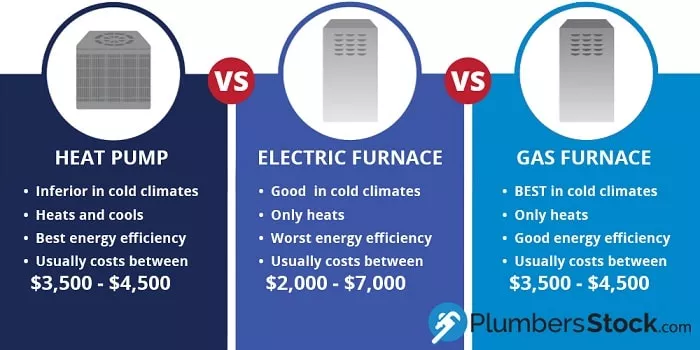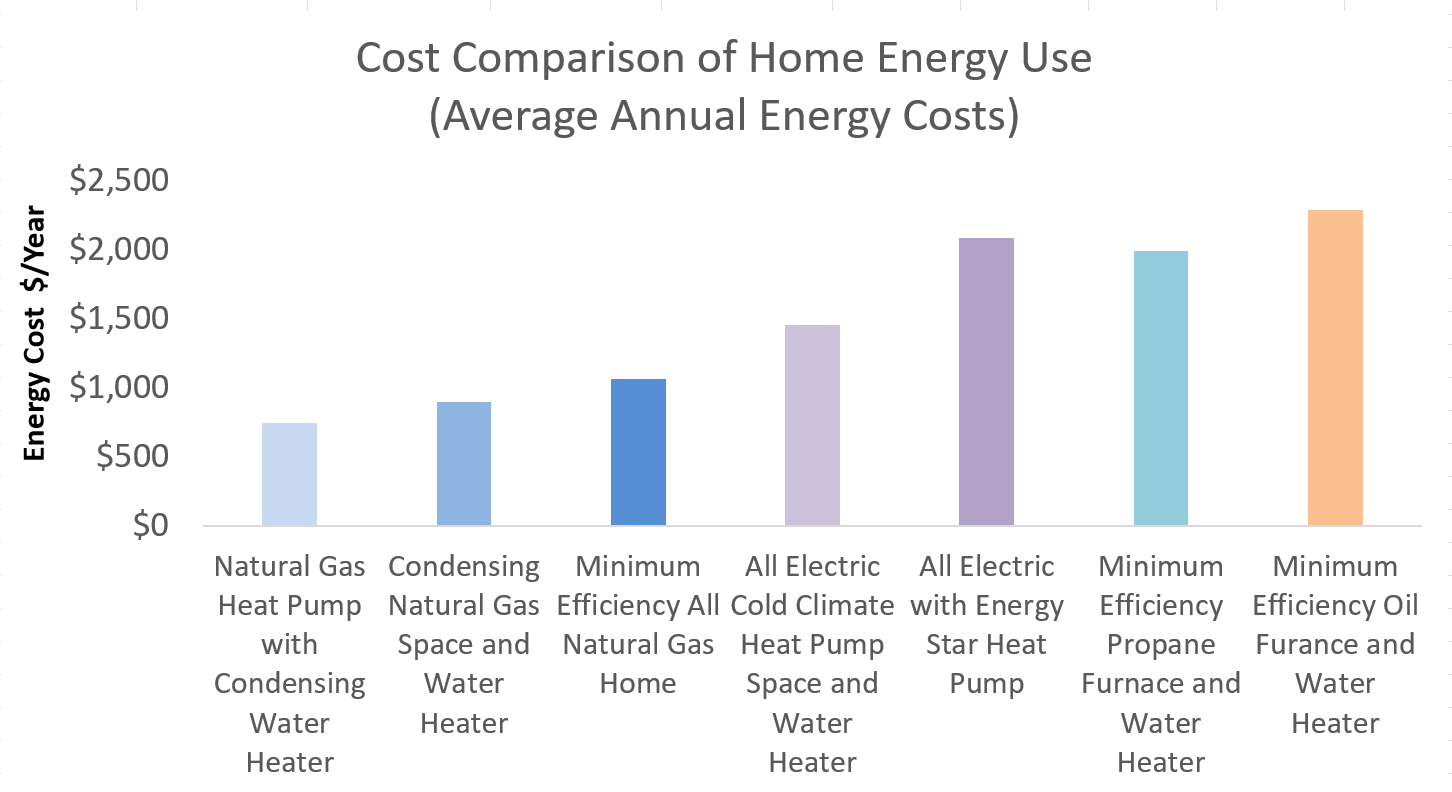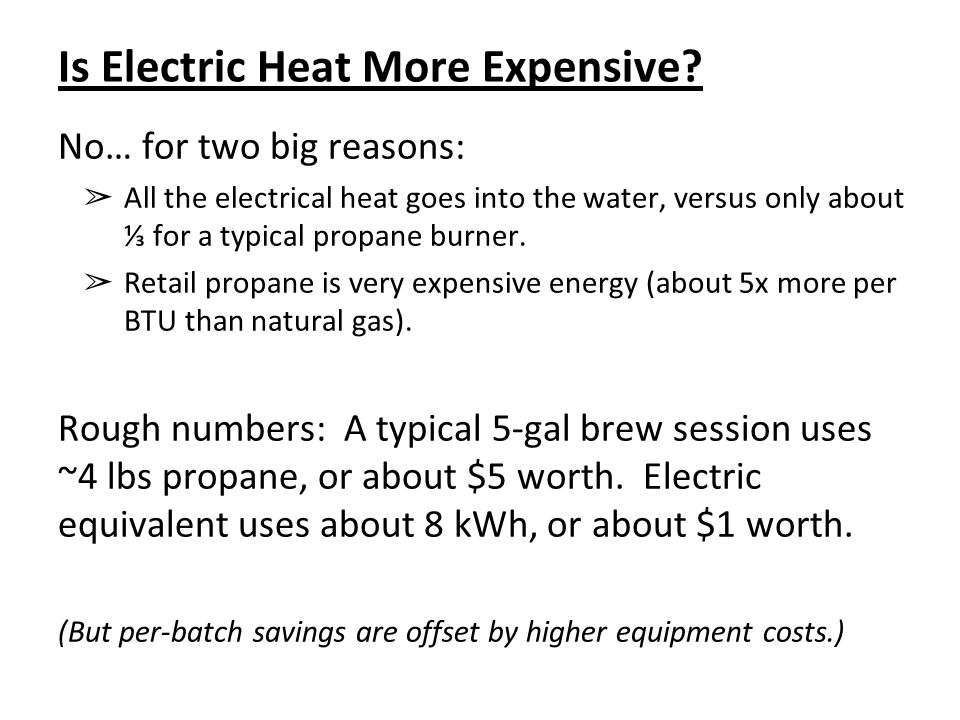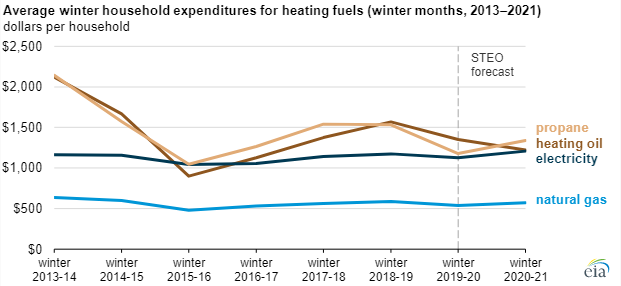Is Electric Heat More Expensive Than Gas

Electric Heat vs. Gas Heat: A Cost Comparison for Homeowners
Choosing the right heating system for your home is a critical decision, impacting both your comfort and your wallet. The central question many homeowners face is: Is electric heat more expensive than gas heat? The answer, unfortunately, isn't straightforward. It depends on a complex interplay of factors, including local energy prices, appliance efficiency, climate, and personal usage habits. This comprehensive guide breaks down the pros and cons of each system, providing the information you need to make an informed decision.
Understanding the Basics: How Electric and Gas Heat Work
Before diving into the cost comparison, it's essential to understand how each type of heating system functions.
- Electric Heat: Electric heating systems convert electrical energy directly into heat. Common types include electric furnaces, heat pumps, baseboard heaters, and space heaters. Electric furnaces use heating elements to warm air, which is then circulated through ductwork. Heat pumps, on the other hand, are more efficient; they transfer heat from the outside air (even in cold temperatures) into your home, and can also reverse the process to provide cooling in the summer.
- Gas Heat: Gas heating systems, typically furnaces, burn natural gas (or propane) to generate heat. This heat warms a heat exchanger, and a blower fan then distributes the warm air through ductwork.
Comparing Upfront Costs: Installation and Equipment
The initial investment is a significant consideration. Generally, gas furnaces have a higher upfront cost than electric furnaces. This is due to the complexity of the gas-burning system and the need for gas line installation. However, heat pumps, particularly high-efficiency models, can also be quite expensive to install, sometimes exceeding the cost of a gas furnace.
- Electric Furnace: $2,000 - $6,000 installed
- Gas Furnace: $4,000 - $10,000 installed
- Heat Pump: $3,500 - $8,000 installed
These are just average ranges, and the actual cost will vary depending on the size of your home, the complexity of the installation, and the brand and model you choose.
Long-Term Operating Costs: Fuel Prices and Efficiency
The long-term operating costs are where the real differences emerge. The key factor here is the relative cost of electricity and natural gas in your area. While electricity is often more expensive per unit of energy (e.g., per kilowatt-hour) than natural gas (e.g., per therm), the efficiency of the heating system also plays a crucial role.
Understanding Efficiency Ratings: AFUE, SEER, and HSPF
To accurately compare the efficiency of different heating systems, you need to understand the relevant efficiency ratings:
- AFUE (Annual Fuel Utilization Efficiency): This rating applies to furnaces (gas and oil). It indicates how efficiently the furnace converts fuel into usable heat. A higher AFUE rating means less fuel is wasted. Modern gas furnaces typically have AFUE ratings between 80% and 98%.
- SEER (Seasonal Energy Efficiency Ratio): This rating applies to air conditioners and heat pumps (in cooling mode). It measures the cooling efficiency over an entire season. The higher the SEER rating, the more efficient the unit.
- HSPF (Heating Seasonal Performance Factor): This rating applies specifically to heat pumps and measures their heating efficiency. It indicates how much heat the heat pump delivers for each unit of electricity consumed. A higher HSPF rating means greater heating efficiency.
When comparing systems, look for models with high AFUE (for furnaces) and high HSPF (for heat pumps) to minimize your operating costs.
Detailed Cost Breakdown: Electricity vs. Gas
Let's consider a hypothetical example:
* **Location:** Midwest United States * **Electricity Cost:** $0.15 per kilowatt-hour (kWh) * **Natural Gas Cost:** $1.00 per therm (1 therm = 100,000 BTUs) * **Furnace Size:** 80,000 BTUs * **Home Size:** 1,500 square feet * **Heating Season:** 6 monthsScenario 1: 80% AFUE Gas Furnace
To produce 80,000 BTUs of heat, the furnace needs to consume 100,000 BTUs of natural gas (due to the 80% efficiency). That's 1 therm of gas, costing $1.00.
Scenario 2: Electric Furnace
To produce 80,000 BTUs of heat using electric resistance heating, you'd need approximately 23.4 kWh of electricity (1 kWh = 3,412 BTUs). At $0.15 per kWh, this would cost $3.51.
Scenario 3: High-Efficiency Heat Pump (HSPF 10)
A heat pump with an HSPF of 10 would require significantly less electricity to produce the same amount of heat. In this case, it might only cost $1.00 - $1.50 to generate 80,000 BTUs. Keep in mind that heat pump efficiency decreases as outdoor temperatures drop, so these savings are more pronounced in milder climates.
This example highlights that in this specific scenario, a gas furnace is significantly cheaper to operate than an electric furnace. However, a high-efficiency heat pump can be competitive, especially in milder climates.
Climate Considerations: Where You Live Matters
The climate you live in dramatically impacts the relative cost-effectiveness of different heating systems. In regions with mild winters, heat pumps are often the most economical choice because they can efficiently extract heat from the outdoor air. However, in areas with extremely cold winters, heat pumps may struggle to provide sufficient heat, and their efficiency drops considerably. In these colder climates, gas furnaces are often the more reliable and cost-effective option.
Maintenance and Repair Costs: Keeping Your System Running Smoothly
Regular maintenance is crucial for both electric and gas heating systems to ensure optimal efficiency and prevent costly repairs.
- Gas Furnaces: Require annual professional inspection and cleaning. This typically includes checking the gas lines, burners, heat exchanger, and venting system. Carbon monoxide testing is also crucial.
- Electric Furnaces: Generally require less maintenance than gas furnaces. However, regular inspection of the heating elements, wiring, and blower motor is still important.
- Heat Pumps: Require annual professional maintenance, including cleaning the coils, checking the refrigerant levels, and inspecting the reversing valve.
Repair costs can vary depending on the type of system and the specific problem. However, gas furnace repairs can sometimes be more expensive due to the complexity of the gas-burning components.
Environmental Impact: A Growing Consideration
Many homeowners are also concerned about the environmental impact of their heating systems. Gas furnaces produce greenhouse gas emissions when they burn natural gas. Electric heating systems, on the other hand, don't directly produce emissions, but the electricity used to power them may come from power plants that burn fossil fuels. The environmental impact of electric heat depends on the source of electricity in your area.
If you're concerned about the environmental impact, consider:
- Switching to renewable energy sources: If you have electric heat, consider purchasing renewable energy credits or installing solar panels to reduce your carbon footprint.
- Choosing a high-efficiency gas furnace: Look for models with high AFUE ratings to minimize fuel consumption.
Popular Brands and Models: A Quick Overview
Several reputable HVAC brands offer both electric and gas heating systems. Here are a few popular options:
* Carrier: Offers a wide range of high-efficiency furnaces, heat pumps, and air conditioners. * Lennox: Known for its innovative and energy-efficient HVAC systems. * Trane: A trusted brand with a reputation for reliability and durability. * Goodman: A budget-friendly option that still offers good performance.Specific models to consider:
* Carrier Infinity 98 Gas Furnace: High-efficiency gas furnace with up to 98.5% AFUE. * Lennox SLP98V Gas Furnace: Variable-speed gas furnace with up to 98.7% AFUE. * Trane XV20i Heat Pump: Variable-speed heat pump with high SEER and HSPF ratings. * Goodman GMVM97 Gas Furnace: Modulating gas furnace with up to 98% AFUE.Warranties: Protecting Your Investment
When purchasing a new heating system, it's essential to understand the warranty coverage. Most manufacturers offer a limited warranty on parts, and some offer extended warranties that cover labor costs as well. Pay close attention to the warranty terms and conditions, as they can vary significantly between brands and models.
Making the Right Choice: A Summary
Ultimately, the best heating system for your home depends on your specific circumstances. Consider the following factors when making your decision:
* Local energy prices: Compare the cost of electricity and natural gas in your area. * Climate: Evaluate the severity of your winters and summers. * Upfront costs: Determine your budget for equipment and installation. * Efficiency ratings: Look for models with high AFUE (for furnaces) and high HSPF (for heat pumps). * Environmental impact: Consider your carbon footprint and explore renewable energy options.Consult with a qualified HVAC contractor to assess your home's heating needs and recommend the best system for your budget and preferences. By carefully weighing the pros and cons of electric and gas heat, you can make an informed decision that will keep your home comfortable and your energy bills manageable for years to come.










